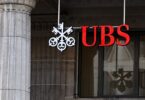BRUSSELS (AFP/APP): Business activity in the eurozone is hovering near a 15-year high despite slightly cooling in August due to supply pressures, a closely-watched survey by IHS Markit showed on Monday.
The purchasing managers’ index (PMI) Composite reading measuring corporate confidence slipped to 59.5 in August, just under the strong 60.2 figure given in July. A figure above 50 indicates growth.
In contrast, the PMI for Britain — a former EU member that never was part of the eurozone — recorded a “sharp slowdown” in August, sliding to a six-month low of 55.3 versus 59.2 a month earlier.
The slight dip seen across the eurozone was explained in part by some business concern over the effects of the Delta variant of the coronavirus, but especially by demand outstripping supply as activity bounced back vigorously in the 19-nation eurozone.
“Supply chain delays continue to wreak havoc,” IHS Markit’s chief business economist, Chris Williamson, said.
The duo of surging demand and supply problems was pushing costs higher, he said, leading to “another near-record increase in average selling prices for goods and services”.
While that could fuel worries about inflation, Williamson said “inflationary pressures may have peaked for now”.
The survey showed service sector growth overtaking that of manufacturing for the first time in the pandemic recovery. Jobs growth was at a 21-year peak.
“The sustained upturn in demand and improved prospects due to rising vaccination rates led to buoyant optimism about the year ahead,” IHS Markit said.
Among the eurozone countries, Germany led the survey, though the supply constraints on its vital manufacturing sector were more marked.
France was faring less well. The PMI Composite reading showed further cooling from a June high, with factory output growth slowing to the slowest rate since February.
Analysis firm Oxford Economics said stabilisation after a growth surge was seen but uncertainty on eurozone business activity going forward was “very high”.
“We continue to see the potential spread of more virulent virus variants and the prolongation of supply chain issues as the main risks to the economic recovery,” it said.
Official data at the end of July showed the eurozone economy had rebounded by a strong two percent in the second quarter.
IHS Markit said the dramatic slowing in Britain in its PMI survey pointed to a weaker recovery happening in August in that country, which had recorded a 4.8 percent jump in economic growth in the second quarter.
A tight labour market pushing up wages and “severe shortages of raw materials and critical components” were sending up purchasing prices in Britain “with UK goods producers signalling the sharpest overall downturn in supplier performance since April 2020,” it said.






